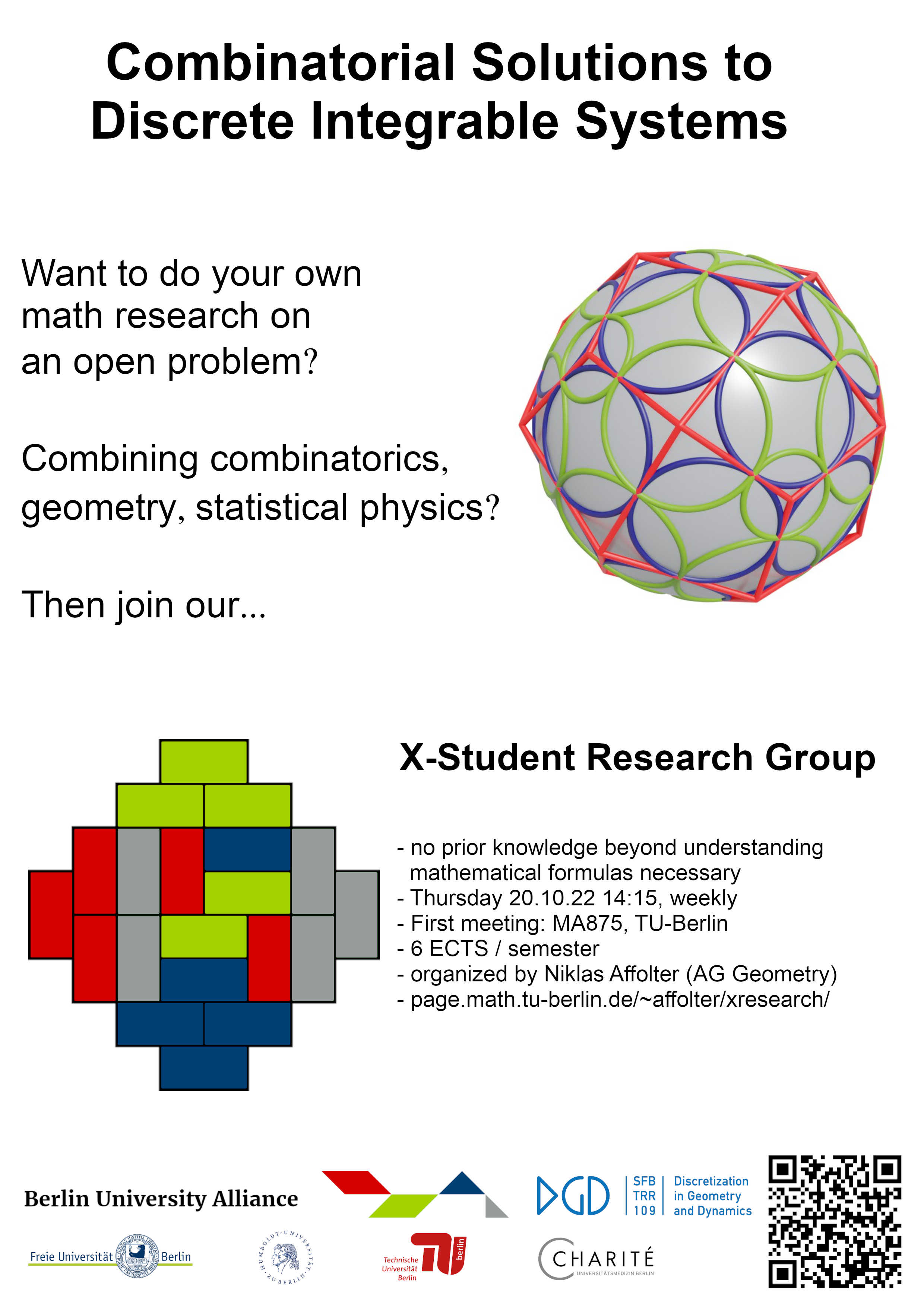The project
The idea of the X-Research Student Groups and this project in particular is that students do
their own research. In this project we look at certain rational recurrence equations on the rectangular lattice.
Iterating these equations should lead to very complicated formulas that grow exponentially both in the number of terms and in degree.
Instead some magic happens, and the formulas are surprisingly well-behaved.
The goal of the project is to write down these formulas explicitly, by (weighted) counting of combinatorial objects associated to some companion graph.
Some reasons why I think this project is suitable for students:
- Feasability: Similar, harder problems have been solved in higher dimensions (A³, Z³, see the literature listed below). There is clear computer-assisted evidence of the "magic" property mentioned above.
- Cross math community: This problem is a good example of how questions and tools of different math communities intersect. The equations naturally occur in incidence geometry and (discrete) surface theory, they are the object of study of discrete integrable systems, we solve them by using methods of enumerative combinatorics, using objects that occur in statistical mechanics.
- Simplicity of the problem: The problem can be stated right away, there is no mathematical background knowledge necessary, beyond dealing with mathematical formulas. Of course, participants need creativity to come up with candidate solutions and analytic thinking to develop and verify these solutions.
Note that as with all research, we cannot know what the precise outcome will be. We will be happy if we find candidate solutions for some of the recursion formulas. Proving the formulas may be something for follow up work, for example in form of a bachelor or master thesis. Depending on the success, there is also the possibility of publishing a joint paper.
Background literature
You do not need to know the contents of the literature listed here, but in case you are wondering where all this is coming from...
We are going to consider the equations (Q1) - (Q4), (H1) - (H4), (A1) - (A2) of
Previous results for 3-dimensional systems can be found here:
- David E Speyer Perfect Matchings and the Octahedron Recurrence, open access:
arXiv,
- Gabriel D. Carroll, David Speyer. The Cube Recurrence, open access:
arXiv,
- Richard Kenyon, Robin Pemantle. Double-dimers, the Ising model and the hexahedron recurrence, open access:
arXiv,
- Paul Melotti. The free-fermionic C^(1)_2
loop model, double dimers and Kashaev's recurrence, open access:
arXiv,
- N. Affolter, B. de Tilière, P. Melotti. The Schwarzian octahedron recurrence (dSKP equation) I: explicit solutions
arXiv:2208.00239
Some geometric applications of the previous recurrence:
- N. Affolter, B. de Tilière, P. Melotti. The Schwarzian octahedron recurrence (dSKP equation) II: geometric systems
arXiv:2208.00244





